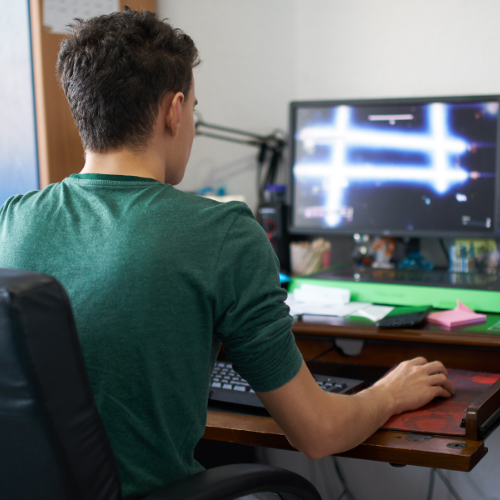“Post hoc, ergo propter hoc” (after it, therefore because of it) is a common logical assumption which rarely holds true. In this case, there could be a variety of other things going on behind the scenes which could account for the correlation between screen time and anxiety disorders. While some research has shown that sedentary behaviour, and particularly time spent taking part in screen-based activities (for example, watching television) is linked to poorer mental health outcomes, the evidence has been conflicting.
Screen test
Dr Fiona Hayes, a GP at the University of Bristol Students’ Health Service, challenged researchers to find out whether there really was a link, using the Research for Health Scheme from the Elizabeth Blackwell Institute. Once selected, Dr Hayes’ question could be answered by researchers funded by the scheme, which aimed to develop research projects focused on finding innovative solutions to current clinical and healthcare problems.
Digital data
Drs Suzanne Gage and Rosie Cornish used the ALSPAC cohort (the Avon Longitudinal Study of Parents and Children) which recruited around 14,000 children who were born in and around Bristol in the early 1990s, and their mothers. ALSPAC has and continues to collect a wide range of information about mother and child health and behavior through questionnaires and measurements taken at study clinics at the University of Bristol.
“When they were 16 years old the participants in this study completed a questionnaire, which asked them how long they spent watching television, using a computer and texting”, said Dr Gage. “Two years later at age 18, ALSPAC collected information about anxiety and depression through a standardised tool which asks questions about symptoms. We used these data to explore whether increased time spent on screen-based activities was associated with anxiety and depression.”
All is not as it seems
The results were intriguing and were recently published in the BMC Public Health journal.
“While we did find a link between increased time spent using screen-based devices and a small increased risk of anxiety and depression, this association was only for computer use, and not for watching television or texting” Dr Gage said.
“The association might be explained by our finding that adolescents who spent more time on a computer were also spending more time alone. So we found little evidence that increased time spent of screen based activities per se is associated with anxiety and depression among adolescents, although it does seem to be associated with time spent alone - which could actually be what’s driving these associations.”
